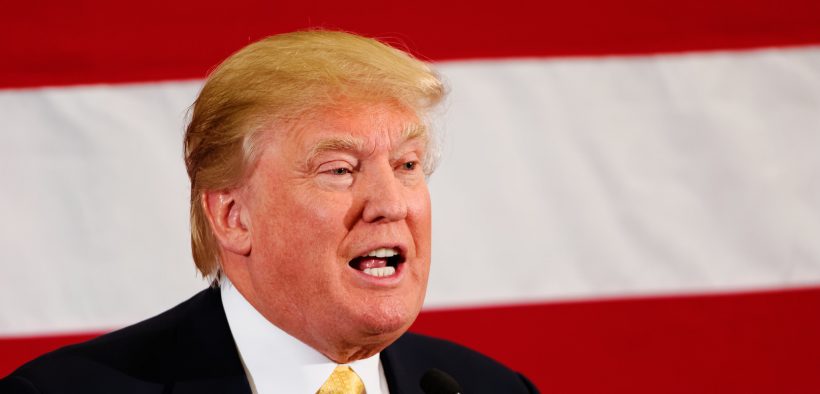Trump To Impose More Tariffs On China

President Trump announced another round of tariffs on Chinese goods on Thursday, the latest development in an escalating trade war between the world’s greatest economies.
In a series of tweets, Trump said his administration would impose a new 10% tariff on $300 billion worth of Chinese goods beginning September 1st, adding to the earlier 25% tariff placed on $250 billion of goods in May. Together, the tariffs make almost every Chinese export to the US subject to tax, from consumer electronics and iPhones to clothes and toys.
Trump said he was frustrated by unproductive negotiations with China, and warned he might raise the newest round to 25%.
“We thought we had a deal with China three months ago, but sadly, China decided to re-negotiate the deal prior to signing,” Trump said on Twitter. “More recently, China agreed to buy agricultural product from the U.S. in large quantities, but did not do so.”
The stock market, as well as oil prices, dropped sharply upon the announcement. Critics expressed concern that the tariffs could cause a global economic recession by disrupting supply chains and splitting the two mammoth economies. Domestically, sectors like agriculture have already suffered under the trade war, prompting the White House to administer $16 billion in bailouts to farmers.
“Looking into the not so distant future,” U.N. Secretary-General Antonio Guterres warned on Thursday, “I see the possibility of the emergence of two competing blocs —- each with their own dominant currency, trade and financial rules, their own internet and artificial intelligence strategy, and their own contradictory geopolitical and military views.”
David French, senior vice president for government relations at the National Retail Federation, was among multiple groups condemning the new round of tariffs: “These additional tariffs will only threaten U.S. jobs and raise costs for American families on everyday goods.”
During the Democratic debates Wednesday night, multiple candidates denounced Trump’s lack of long-term strategy in applying the protectionist measures. Sen. Ron Wyden, the top Democrat on the Senate Finance Committee, joined the criticisms on Thursday:
“I am always first in line for getting tough on China,” said Sen. Wyden. “But Trump doesn’t have any strategy to get China to stop cheating on trade.” Wyden argued the tariffs will only raise costs for consumer goods while disrupting the economy, without making “China stop stealing our technology and undercutting American jobs.”
On Wednesday, the Federal Reserve lowered interest rates a quarter-point, the first cut since the great recession, in response to growing risks posed by trade tensions and slowing global growth. Trump expressed disappointment that Fed chair Jerome Powell did not give a larger rate cut, but since his newest tariffs increase the risk of recession, they could inspire Powell to initiate more aggressive cuts.
“The president can force the central bank to do something though the imposition of tariffs, but in doing that the president risks pushing the economy into a recession,” Michael Gapen, chief U.S. economist at Barclays, told CNBC.















